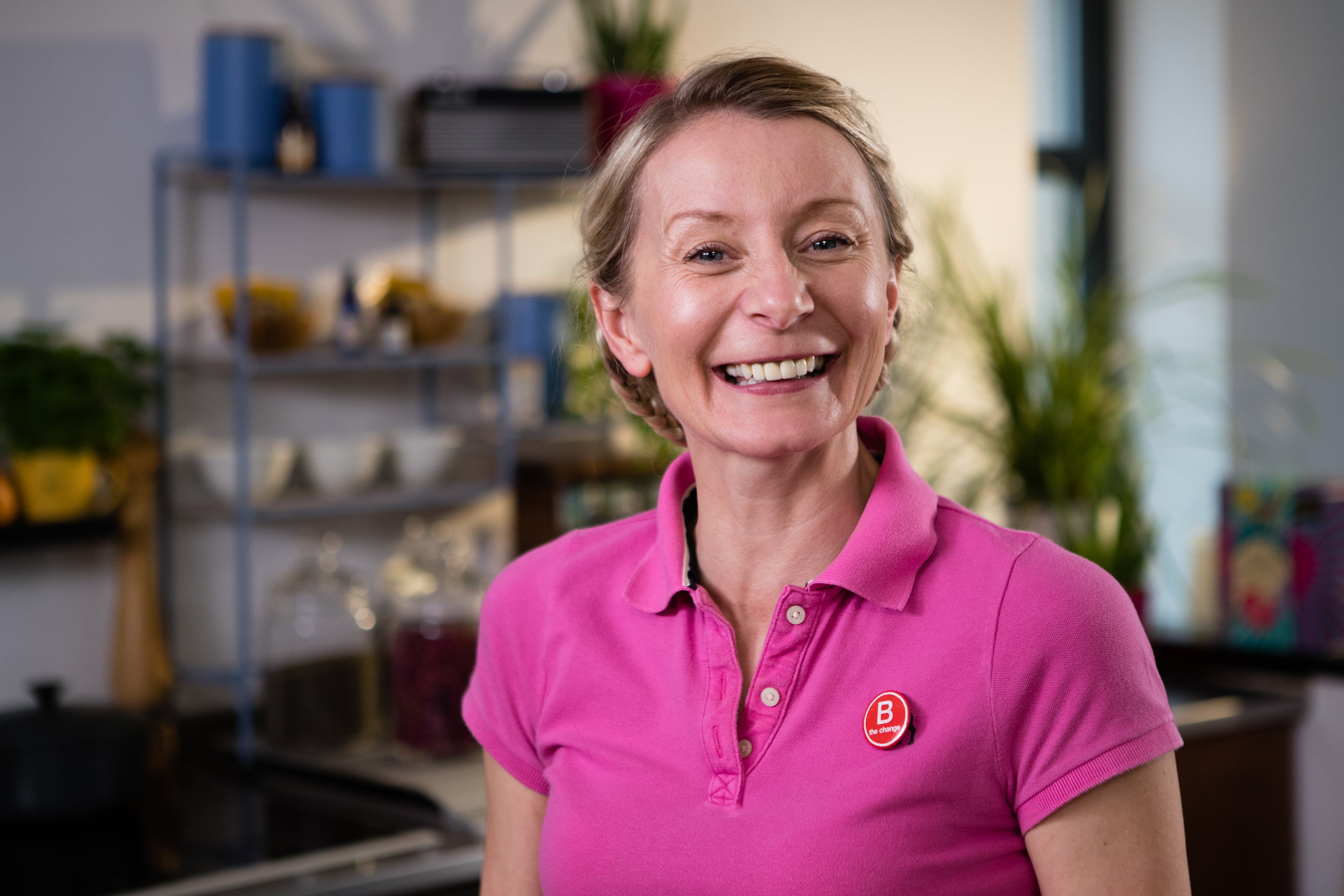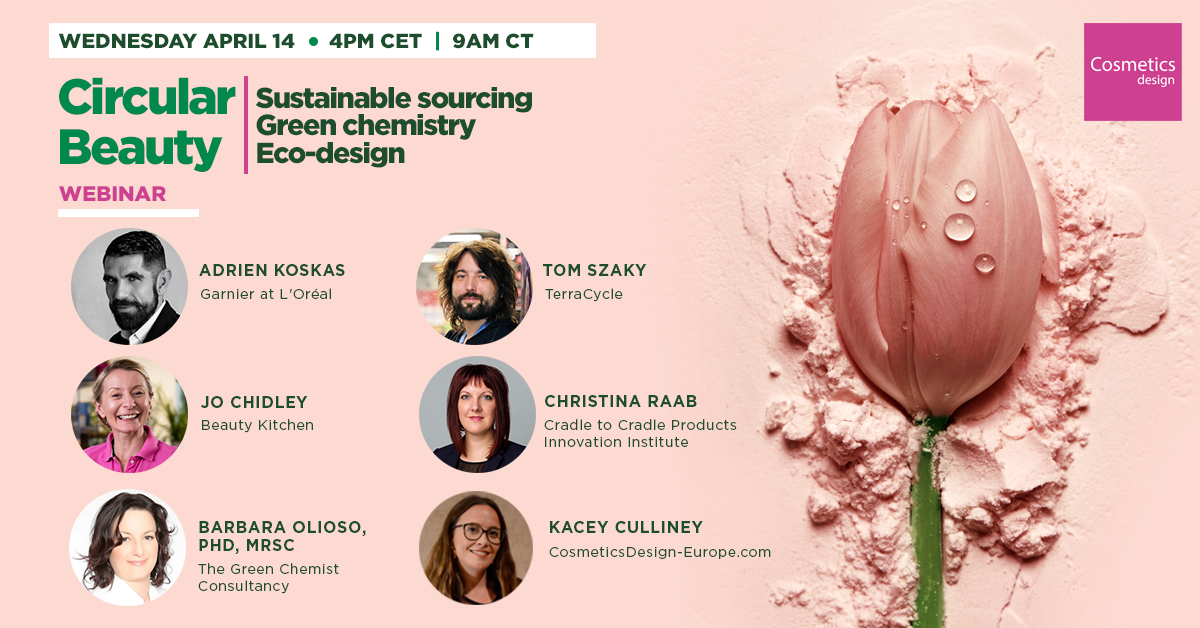Over the last 18-months, beauty brands – large and small – had drastically scaled up sustainability pledges and action, with many turning to circularity to protect the planet and its people. And UK indie brand Beauty Kitchen was just one example.
Founded in 2014 with the goal of developing a sustainable yet scalable business, Beauty Kitchen was now certified B-Corp and following Cradle to Cradle (C2C) principles, continuing its push to create sustainable formulas and packaging across its entire portfolio. But brand founder Jo Chidley said true impact wouldn’t be possible without wider industry collaboration – a notion her company had been touting for some time.
‘We really can’t run our businesses the way we currently do’

“Collaboration is key to circularity,” Chidley said at CosmeticsDesign’s Circular beauty - Sustainable sourcing | Green chemistry | Eco-design webinar earlier this month (now available to watch on demand).
“We don’t run our businesses the same way we did, and we really can’t run our businesses the way we currently do to be able to future-proof them. So, the collaboration and the openness that’s happening within our industry really excites me,” she said.
Beauty Kitchen was heavily invested in industry collaboration, she said, working with numerous retailers like Tesco; recycling specialists like TerraCycle; and even other beauty brands like Unilever.
“We’ve supported many businesses across the board, in terms of how we do things at Beauty Kitchen that could be done for a much bigger organisation,” she said.
“…At Beauty Kitchen, because we’re a young indie brand, we get the opportunity to push the boundaries and we always want to demonstrate what is possible.”
Big beauty must jump aboard – ‘it’s going to take me 30 years’ to create change
Moving forward, Chidley said involvement from the bigger, mass beauty players would be critical in driving real sustainable change across industry.
“Much larger organisations – they’re the ones that can make the biggest impact. I’m a small, indie brand. It’s going to take me 30 years, if not longer, to get to a big enough size to make a big enough impact. If we get (…) any of the big personal care beauty industry product holders to change to a more circular way of doing things, then that’s where the big impact will happen.”
And a major part of this, she said, would be embarking consumers with this mass beauty shift – action would have to centre on storytelling and giving consumers “a little bit of ownership”.
“If we all own a little part of circular beauty, then we’re more likely to respond to those call to actions. And that’s what I really love about what’s happening at the moment – it’s this inclusivity. Because, sometimes, beauty can be quite exclusive and I think that’s changing. I think we have to change that and make everyone included in the conversation.”
Asked if circular beauty could become a mainstream reality, Chidley said: “Without a doubt (…) When you go to any of the tradeshows or any of the industry shows to find out more about packaging, innovative ingredients and formulations, everyone is talking about sustainability, green chemistry and a circular approach. Whether they’re actually doing that is for another day, but I think the fact industry is moving in that direction and there is consumer appetite for it, then that is where the dream-making happens.”
Circular Beauty expert brainstorm with TerraCycle, Garnier, Beauty Kitchen, Cradle to Cradle and The Green Chemist Consultancy

Interested in hearing more of Chidley’s ideas on how smaller, indie brands can work to build out a commercially viable circular beauty business model? Want to know more about the areas offering most promise for sustainable growth? You can register to watch the full Circular beauty - Sustainable sourcing | Green chemistry | Eco-design expert webinar on-demand now.




